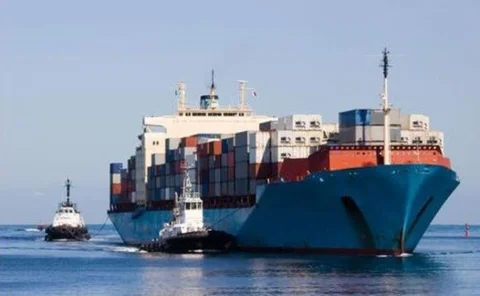Feature
European power market coupling marches on
Market coupling projects continue to spread across Europe, bringing the market closer to achieving a single power price – but challenges still lie ahead. In the first article in a series focusing on European power markets, Gillian Carr looks at the next…
Credit rating agencies: what are the alternatives for energy markets?
Repeated stumbles by the credit rating agencies have led risk managers to explore new ways of assessing counterparties. Alexander Osipovich examines the alternatives
Is European shale a game-changer for the gas markets?
While shale gas has been a game-changer in the US markets, its impact has been more muted in Europe, with environmental concerns preventing fracking in several countries. Jay Maroo looks at the future of shale gas in Europe and asks how big an impact…
Energy markets face huge change under Mifid II
Many exemptions that commodity firms took for granted under the old Mifid framework will no longer exist when Mifid II and Mifir come in to force. Ellen Davis reports
Managing geopolitical risk in energy markets
The increasing influence of geopolitical risk on energy markets is forcing risk managers to reassess their risk management strategies around such event-type risk, finds Gillian Carr
Surveying the future of Europe's natural gas markets
Demand for gas in Europe is set to increase in the coming years benefiting today’s most liquid hubs, say respondents to a survey carried out by Energy Risk and Baringa Partners. By Stella Farrington with comment from Nick Tallantyre
Algorithmic trading in energy markets
Algorithmic traders are now a significant presence in energy markets. Alexander Osipovich explores how they’re changing the game for human traders
High-frequency trading spreads across energy markets
High-frequency trading (HFT) is playing an ever-larger role in energy markets, but is it really suited to the nuanced deal sheets of commodities? Stephen Maloney considers this and asks whether HFT is in fact quietly tilting the table to favour those…
Healthy volumes for capesize FFAs seen continuing in 2012
Strong iron ore demand is expected to keep capesize prices afloat this year, although some choppiness is forecast. Jay Maroo reports on what that means for the forward freight agreement market in 2012
Power plant hedging strategies
A comparison of common delta-hedging strategies and calculations finds that simple formulas used to calculate delta hedges can lead to severe biases. Cyriel de Jong, Hans van Dijken and Alexandra Bundalova suggest a relatively fast, but more accurate…
Marginal oil gaining market share, setting higher floor price
Marginal oil, with its greater risks and higher cost of production, will exert more influence on oil prices as it moves to becoming 10% of global supply by 2035. Gillian Carr reports
US natural gas hedging: 2012 outlook
Pauline McCallion speaks to natural gas producers and consumers about what’s on the radar that might affect their hedging strategies this year
Energy Risk Environmental Rankings 2011
Carbon prices have plunged in both Europe and the US recently as the fragile global economy takes its toll. However, interest in green markets remains relatively unscathed, with voluntary emissions and biomass markets ones to watch in 2012, writes…
Regulation a concern for CEE power and gas traders
Regulation, market coupling and the drawback of import/export tariffs were some of the most pressing issues discussed at Energy Risk’s central and eastern Europe conference last month. Gillian Carr reports
Has the bubble burst for Italy's renewables market?
The recent legal changes relating to the renewables energy sector in Italy, which will retroactively cancel all industry incentives, has caused strong opposition from energy players. Catia Tomasetti and Gabriele Malgeri outline the changes
Is asset-backed credit support an option for energy firms?
Asset-backed credit support could be a viable option for energy producers wishing to better utilise the value of their assets to manage collateral obligations under hedge transactions, write Chad Mills, Chris Hayes and Jon Hoff
Will aviation give the EU ETS a lift next year?
With aviation falling under the EU Emissions Trading Scheme next year, European airlines are already hedging their exposure in the carbon markets. Vanya Dragomanovich looks at the potential impact on the emissions markets
Can the EU Emissions Trading Scheme survive Europe's debt crisis?
Carbon prices under the European Union Emissions Trading Scheme have dropped dramatically this year and are widely expected to remain low for some time. Jay Maroo looks at the implications of this for the market as it approaches its third phase in 2013
Q&A – RWE npower's Volker Beckers
Vanya Dragomanovich talks to RWE npower’s chief executive Volker Beckers about his hopes and concerns for UK electricity market reform and his long-term vision for the UK power markets
Is Remit too big a burden for energy market participants?
Remit, the EU’s new energy trading regulation, sprung from political concerns about market abuse. The provisions will massively increase reporting requirements for energy producers. But do they go too far, and is the body charged with collecting market…
Outlook for UK natural gas
The traditional contango of the UK natural gas curve has smoothed out in recent weeks, with summer seasons now at parity and the winters either on a par or even dipping into backwardation. Tom Woolley investigates the trend and its likely impact on…
Energy market concerns over Dodd-Frank
As the Dodd-Frank rule-making process rumbles on, energy market participants continue to voice concerns about regulatory overreach. Pauline McCallion reports on potential unintended consequences of proposed rules
Ten years after its collapse, Enron lives on in energy markets
There is no doubt that the influence of Enron lives on in today’s energy markets. Energy Risk talks to ex-Enronites about how the company achieved what it did and what lessons it can still teach us today
More clarity needed over commodities clearing in Europe
European regulation aimed at driving more commodity derivatives trading through clearing is causing concern among small and medium-sized energy companies that don’t yet know if they will be exempted from the requirements. Gillian Carr reports























